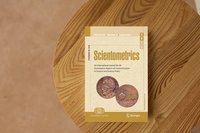gesis report 08/23
Liebe Leser*innen, mit der August-Ausgabe des gesis reports melden wir uns zurück aus der Sommerpause. Daher ist der vorliegende Newsletter etwas länger als gewöhnlich und vollgepackt mit vielen interessanten Infos und News aus dem Hause GESIS. Wir wünschen Ihnen viel Freude bei der Lektüre! Ihre Redaktion | Dear readers, with the August issue of the gesis report we are back from our summer break. Therefore, this newsletter is a bit longer than usual and packed with lots of interesting information and news from GESIS. We hope you enjoy reading it! Your editorial team |
GESIS Fall Seminar in Computational Social Sciences 2023 – Last spots availableJoin us in Mannheim from 11 to 29 September and immerse yourself in a wide range of introductory and advanced methods courses on computational social science, taught by GESIS and international experts. The Fall Seminar is designed for researchers from the social sciences, data science, communication science, and the digital humanities who are eager to collect and analyze data from the web, social media, or digital text archives. Places are still available in the following courses: Week 1 (11 - 15 September) Week 2 (18 - 22 September) Week 3 (25 - 29 September) For those without any prior experience in R or Python and those who’d like a refresher, we’re additionally offering two pre-courses, “Introduction to R” and “Introduction to Python” (three days, online) in the week before the start of the Fall Seminar.
GESIS Workshops 2023 – Tailored to Your NeedsWatch out for our expanded workshop program! Besides our popular courses on qualitative (content analysis), and quantitative research methods (sequence analysis), we added the following new workshops to our program:
GESIS Spring Seminar 2024 – Cutting-Edge Methods – Save the DateMark your calendars for 26 February to 15 March 2024! Get ready to embark on a journey of learning and innovation. The GESIS Spring Seminar is renowned for providing high-quality training in state-of-the-art techniques in quantitative data analysis taught by leading experts in the field. The courses will be taught in hybrid mode – all in English. Each year, we select a topic that reflects the latest developments and innovations in social science research methodology. Next year's topic will be "Recent Developments in Longitudinal Data Analysis". We are excited to announce that Scott Cunningham, author of Causal Inference: The Mixtape, will be leading a class on Diff-in-Diff Estimation from 04 to 08 March. Full program will be out in the fall. Stay tuned for more information. | GESIS Training Workshops in November/ December 202306/11-08/11 13/11-14/11 13/11-14/11 13/11-15/11 16/11-17/11 22/11-24/11 28/11-30/11 29/11-01/12 Check out our other workshops! Save the date:CHOC2023 - Conference on Harmful Online Communication, Cologne / online, November 16–17, 2023 Meet-the-Data @BildungsforschungIn der KonsortSWD-Reihe Meet-the-Data werden ausgewählte Datenbestände vorgestellt und Fragen zum Datenzugang und zur Datennutzung beantwortet. |
Meet the Experts – New talks on "Data Services, Data Archiving, and Research Data Management" starting September 14th
- 14.09.2023, Dr. Jonas Becker & Kerstin Beck, Becoming a trustworthy digital preservation repository: Certification for data archives and research data centers
- 28.09.2023, Oliver Watteler, Introduction to GESIS Data Services
- 12.10.2023, Dr. Alexander Jedinger, Community Data Collection
- 26.10.2023, Wolfgang Zenk-Möltgen, Dr. Jan Schwalbach, Kokila Jamwal, What do you know about your data? Metadata and PIDS at the GESIS Data Archive
- 09.11.2023, Dr. Alexander Jedinger, Marlene Hilgenstock, Pascal Kolkwitz-Anstötz, Introduction to domain-specific data infrastructures: DP-R|EX
- 23.11.2023, Sebastian Netscher & Dr. Anja Perry, Research Data Management and RDM-Training at GESIS
- 07.12.2023, Jara Kampmann & Dr. Deborah Wiltshire, Managing the risks of the different access routes for sensitive data
After a presentation, our experts will be available for further discussion and to answer questions.
Further information & registration
 | Bundesinnenministerin Nancy Faeser übernimmt die Schirmherrschaft für FReDADas Dateninfrastrukturprojekt FReDA des Bundesinstituts für Bevölkerungsforschung (BiB) hat zum Ziel, Forschung und Datenbasis zur Lebenssituation, zur Lebenszufriedenheit und zu Wertvorstellungen von Familien und Menschen im jungen und mittleren Erwachsenenalter deutlich zu verbessern und langfristig zu sichern. Federal Minister of the Interior Nancy Faeser assumes patronage for FReDAThe data infrastructure project FReDA of the Federal Institute for Population Research (BiB) aims to significantly improve and secure in the long term research and data basis on the life situation, life satisfaction and values of families and people in young and middle adulthood. |
 | Wie nutzt man soziale Netzwerke für die Rekrutierung von Umfrage-Teilnehmenden? Neue Survey Guideline erschienenMüssen Sie für Ihre Umfrage schwer zugängliche Bevölkerungsgruppen befragen? Haben Sie schon einmal daran gedacht, soziale Netzwerke für die Rekrutierung zu nutzen? Schauen Sie sich unsere neue Survey Guideline an an! How to use Social Networking Sites for survey recruitment - new Survey Guideline out now!Do you need to survey hard-to-reach populations? Ever thought about using social networking sites for recruitment? Check out our new Survey Guideline! |
 | Daten der PIAAC-Hauptstudie erfolgreich erhobenDie Datenerhebung der PIAAC-Hauptstudie wurde in Deutschland nach einer neunmonatigen Feldzeit Ende Mai 2023 erfolgreich abgeschlossen. PIAAC – The Programme for the International Assessment of Adult Competencies – ist eine Studie der OECD (Organisation für wirtschaftliche Zusammenarbeit und Entwicklung), die grundlegende Kompetenzen Erwachsener im internationalen Vergleich untersucht. Data from the main PIAAC study successfully collectedData collection for the main PIAAC study was successfully completed in Germany at the end of May 2023 after a nine-month field period. PIAAC - The Programme for the International Assessment of Adult Competencies - is an OECD (Organisation for Economic Co-operation and Development) study that examines basic adult competencies in an international comparison. |
 | Neu erschienen: “Is there a growing use of mobile devices in web surveys?”Gummer, Tobias, Jan Karem Höhne, Tobias Rettig, Joss Roßmann, and Mirjan Kummerow. 2023. "Is there a growing use of mobile devices in web surveys?: Evidence from 128 web surveys in Germany." Quality & Quantity, online first 1-21. doi: https://doi.org/10.1007/s11135-022-01601-8 Die Autor*innen untersuchen in dieser Studie die Verwendung mobiler Geräte in Web-Umfragen in Deutschland. Sie analysieren Daten aus 128 Web-Umfragen, die zwischen 2012 und 2020 durchgeführt wurden, und stellen fest, dass die Nutzung von Smartphones deutlich zunahm, während die Verwendung von Tablets stagnierte und die Nutzung von Desktop-PCs abnahm. Recently published: “Is there a growing use of mobile devices in web surveys?”Gummer, Tobias, Jan Karem Höhne, Tobias Rettig, Joss Roßmann, and Mirjan Kummerow. 2023. "Is there a growing use of mobile devices in web surveys?: Evidence from 128 web surveys in Germany." Quality & Quantity, online first 1-21. doi: https://doi.org/10.1007/s11135-022-01601-8 The authors investigated the use of mobile devices in web surveys in Germany. They analyzed data from 128 web surveys conducted between 2012 and 2020 and found a significant increase in smartphone usage, while tablet use remained stagnant, and desktop PC usage declined. |
 | "Tatort Uni - #MeToo und Machtmissbrauch an Hochschulen" - Doku in der ZDF-Mediathek mit Dr. Anke LipinskyJetzt verfügbar in der ZDF-Mediathek: "Tatort Uni - #MeToo und Machtmissbrauch an Hochschulen" https://www.zdf.de/dokumentation/die-spur/diespur-metoo-machtmissbrauch-tatort-uni-102.html Erniedrigungen, Mobbing, sexualisierte Übergriffe - im Wissenschaftsbetrieb häufen sich Fälle von Machtmissbrauch. Haben unsere Unis und Hochschulen ein #MeToo-Problem? "Tatort Uni - #MeToo und Machtmissbrauch an Hochschulen" - documentary in the ZDF media library with Dr. Anke LipinskyNow available in the ZDF media library: "Tatort Uni - #MeToo und Machtmissbrauch an Hochschulen" https://www.zdf.de/dokumentation/die-spur/diespur-metoo-machtmissbrauch-tatort-uni-102.html Humiliation, bullying, sexualized assaults - cases of abuse of power are increasing in the academic world. Do our universities and colleges have a #MeToo problem? |
 | Neu erschienen: “How to Detect and Influence Looking Up Answers to Political Knowledge Questions in Web Surveys.”Gummer, Tobias, Tanja Kunz, Tobias Rettig, and Jan Karem Höhne. 2023. "How to Detect and Influence Looking Up Answers to Political Knowledge Questions in Web Surveys." Public Opinion Quarterly, online first. doi: https://doi.org/10.1093/poq/nfad027 Diese Studie untersucht das Nachschlagen von Antworten zu politischen Wissensfragen in Web-Umfragen („Lookups“). Frühere Forschungsergebnisse deuten darauf hin, dass Lookups politische Wissensscores künstlich erhöhen und die Validität der Messungen verringern. Recently published: “How to Detect and Influence Looking Up Answers to Political Knowledge Questions in Web Surveys.”Gummer, Tobias, Tanja Kunz, Tobias Rettig, and Jan Karem Höhne. 2023. "How to Detect and Influence Looking Up Answers to Political Knowledge Questions in Web Surveys." Public Opinion Quarterly, online first. doi: https://doi.org/10.1093/poq/nfad027 The study investigates looking up answers to political knowledge questions in web surveys. Previous research suggests that looking up answers artificially inflates knowledge scores and reduces the validity of these measures. |
 | Neue FReDA-Daten verfügbar & FReDA Data Portal onlineDas FReDA Data Portal ist online +++ Erstmalige Veröffentlichung von Partnerdaten +++ Neueste Erhebung von pairfam veröffentlicht New FReDA data available & Data Portal onlineFReDA Data Portal is online +++ First publication of partner data +++ Latest pairfam survey published
|
 | Neuer Praxisleitfaden: Wie gelingt wissenschaftsgeleitetes Publizieren von Open-Access-Journals?Das Alexander von Humboldt Institut für Internet und Gesellschaft (HIIG) hat ein Set aus sechs Handreichungen veröffentlicht, die Forschende und herausgebende Einrichtungen beim Aufbau von wissenschaftlichen Open-Access-Zeitschriften unterstützen. Mit praktischen Tipps und wertvollem Know-how führen sie durch die zahlreichen Herausforderungen der Publikationstätigkeit. New practical guide: How does science-led publishing of open access journals succeed?The Alexander von Humboldt Institute for Internet and Society (HIIG) has published a set of six handouts to support researchers and publishing institutions in setting up scientific OA journals. With practical tips and valuable know-how, they guide through the many challenges of publishing. |
 | Push*Back*Lash-Projekt veröffentlicht seinen ersten GESIS-produzierten PodcastProf. Zoe Lefkofridi, Projektkoordinatorin des Push*Back*Lash-Projekts, erklärt Gastgeberin Dr. Kristi Winters die Motivation hinter dem Forschungsprojekt, das sich der Förderung und dem Schutz der Demokratie widmet. Mehr lesen...Push*Back*Lash Project releases its first GESIS-produced podcastProf. Zoe Lefkofridi, Project Coordinator for the Push*Back*Lash project explains to host Dr. Kristi Winters the motivation behind this research dedicated to nurturing and protecting democracy by explicitly considering intersectional perspectives. Read more... |
 | Neue Ausgabe der "methods, data, analyses" erschienen!methods, data, analyses, Vol 17, No 2 (2023) Die zweite Ausgabe der mda in diesem Jahr enthält vier Forschungsberichte und zwei Field Reports, die sich mit einer breiten Auswahl an Themen aus der Umfragemethodik befassen. Current issue of "methods, data, analyses" published!methods, data, analyses, Vol 17, No 2 (2023) The second issue of mda this year contains four research reports and two field reports that address a wide range of survey methodology topics. |
 | Neue Publikation zur Verschwörungserzählung des „Großen Austausches“Jedinger, A., Masch, L., & Burger, A. M. (2023). Cognitive Reflection and Endorsement of the “Great Replacement” Conspiracy Theory. Social Psychological Bulletin, 18, 1-12. https://doi.org/10.32872/spb.10825 Eine Verschwörungserzählung, die in den letzten Jahren häufig von rechtspopulistischen Parteien und Akteuren aufgegriffen wurde, ist das Narrativ des „Great Replacement“ oder des „Großen Austausches“. Nach dieser Verschwörungserzählung ist die Masseneinwanderung nach Europa und in die USA Teil einer geheimen Verschwörung, um die autochthone weiße und christliche Bevölkerung durch nicht-weiße und muslimische Einwanderer zu ersetzen. In ihrer neuen Studie haben Alexander Jedinger, Lena Masch und Axel M. Burger erforscht, welche psychologischen Faktoren beim Glauben an die "Great Replacement"-Verschwörung eine Rolle spielen. New publication about the “great replacement” conspiracy theoryJedinger, A., Masch, L., & Burger, A. M. (2023). Cognitive Reflection and Endorsement of the “Great Replacement” Conspiracy Theory. Social Psychological Bulletin, 18, 1-12. https://doi.org/10.32872/spb.10825 According to the “great replacement” conspiracy theory, mass immigration to Europe and the U.S. is part of a secret plot to replace the autochthonous White and Christian population with non-White and Muslim immigrants. With the aim of exploring psychological factors that play a role in believing in the “great replacement” theory, the present research focused on individual differences in reflective thinking. |
 | Neue Publikation zu Einbettungsmodellen für die überwachte automatische Extraktion und KlassifizierungSmirnova, N., Mayr, P. Embedding models for supervised automatic extraction and classification of named entities in scientific acknowledgements. Scientometrics (2023). https://doi.org/10.1007/s11192-023-04806-2 Danksagungen in wissenschaftlichen Arbeiten können einen Einblick in Aspekte der wissenschaftlichen Gemeinschaft geben, wie z. B. Belohnungssysteme, Kooperationsmuster und versteckte Forschungstrends. Das Ziel dieser Arbeit ist es, die Leistung verschiedener Einbettungsmodelle für die Aufgabe der automatischen Extraktion und Klassifizierung von anerkannten Entitäten aus dem Danksagungstext in wissenschaftlichen Arbeiten zu bewerten. New publication about embedding models for supervised automatic extraction and classificationSmirnova, N., Mayr, P. Embedding models for supervised automatic extraction and classification of named entities in scientific acknowledgements. Scientometrics (2023). https://doi.org/10.1007/s11192-023-04806-2 Acknowledgments in scientific papers may give an insight into aspects of the scientific community, such as reward systems, collaboration patterns, and hidden research trends. The aim of the paper is to evaluate the performance of different embedding models for the task of automatic extraction and classification of acknowledged entities from the acknowledgment text in scientific papers. |
 | E-Mail wird nicht richtig dargestellt? Jetzt im Browser anschauen! Eine Abbestellung des Newsletters "gesis report" ist jederzeit über diesen Link möglich: https://lists.gesis.org/mailman/listinfo/gesis-newsletter Sie können uns auch gerne eine E-Mail senden: gesisreport@gesis.orgDie Datenschutzhinweise von GESIS können Sie über folgenden Link einsehen: https://www.gesis.org/institut/datenschutz/ Display problems? No images? Open the newsletter in your browser! You can unsubscribe from the newsletter "gesis report" at any time via this link: https://lists.gesis.org/mailman/listinfo/gesis-newsletter You can also send us an e-mail: gesisreport@gesis.org The GESIS data protection information can be viewed via the following link: https://www.gesis.org/institut/datenschutz/ |

